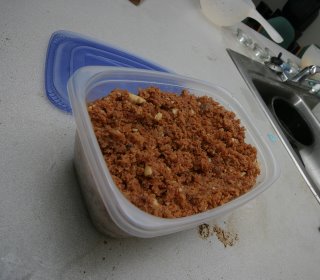This is in part, a continuation of my previous post. In family matters Coomy treats her step-father- Nariman Vakeel very shabbily. One of the reasons is that Nariman became her step-father at the late age of 11, so she didn't have the child-father feelings for her. But the major reason was that though Nariman had married Yasmin, he could not forget Lucy which was the woman he loved. Lucy was always there in his mind and he had not accepted his married life whole-heartedly. He went to such lengths to meet Lucy which would be considered nothing short of scandalous. Chaeteu felicity was constantly strained- so were Nariman's relations with the family.
What child could be expected to love her father if she cannot respect him. It is possible for adults to love someone in spite of shortcomings; but for children it is a different case. Children see in their father a man who is perfect, who is all powerful, who can do nothing wrong and who is the answer to all their questions. But when parents fight and children watch them abusing and hitting each other, it is the children who suffer. The image of perfect parent is shattered. Forever.
Coomy draws her hatred from this. Nariman, on his part does not make any conscious effort to build the bridges with his children which he is intentionally or otherwise burning. Coomy holds Nariman responsible for her mother's death. Anyone in Coomy's position would do that. With this past, can Coomy be expected to nurse her bed-ridden step-father? One would say that time heals, so Coomy would also forget the past and become friends with Nariman. But she does nothing of the sort. She is too human for that. And fate treats her appropriately in the end but that is a different story.
Please read this summary before proceeding:
"Story of Pao" is the most critically acclaimed film produced in Vietnam
during 2006. It centers on a young girl, Pao, a member of an ethnic
minority group living in the Vietnamese highlands. By recalling Pao's
memories of her parents and their emotional life, the film deftly explores
the concept of love from different points of view." Courtesy: Christina Skourou
In stark contrast to
Coomy is
Pao. The woman whom
Pao's father married could not conceive. Her
infertility was almost a curse in the highlands. So
Pao's father brought home another woman- Mrs Kim who bore
Pao and her younger brother. Mrs Kim would not live with
Pao, instead she left them all after living with them for a short while.
Pao grows up resenting the presence of Mrs Kim in the house. She is oblivious to the fact that Mrs Kim lover her father too much to live with them.
Pao falls in love with a guy from the local market. Let us call this guy A. Shortly after
Pao finds that
Pao's mother (not Mrs Kim) loves A's father. This discovery shatters
Pao and she becomes more and more withdrawn. The mother, with her conscience heavy, disappears under
mysterious circumstances.
Pao's father and the rest assume she has died. The death affects
Pao's father badly and he takes to drinking heavily.
Pao's world is disappearing in front of her eyes. What does she do?
She decides to find and bring Mrs Kim, her biological mother back- for her father. Not for her and not for her brother but her sick and weak father. She is gone from her home for weeks and faces many difficulties but she is finally able to track Mrs Kim; only to find out that she is living with another man. Defeated and hopeless, she prepares to return to her village-
empty handed. While returning, she finds that her mother who is living with A's father. She had not died. But escaped with her love!
When
Pao reaches home, she finds Mrs Kim nursing her ailing father.
This is the power of love. It was love which made
Pao's mother run away with A's father and it was love which made Mrs Kim return to
Pao's father.
Pao never tells her father the truth about her mother . This is the difference between
Coomy and
Pao.
Pao could forgive,
Coomy could not.
On a different note, If
Nariman had defied his parents and married Lucy.. if....
Huzefa




